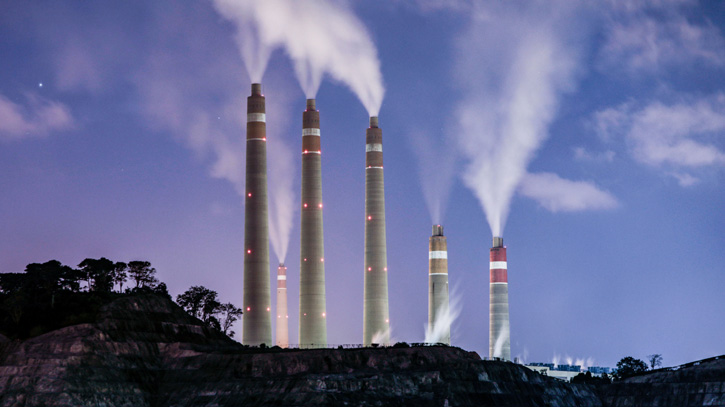A new report released on Thursday by the Asian Development Bank says Asia must rapidly cut fossil fuel subsidies and plow more money into a clean energy transition to avoid catastrophic climate change that puts its own development at risk.
David Raitzer, an ADB economist and one of the authors of the report urged quick action on an energy transition for greater benefits and lower costs as the region’s economic development is being fueled in a carbon-intensive way that is well above the world average.
“Ambitious action on climate change with well-designed policies can have a massive payoff,” Raitzer said.
According to the report, several countries are developing new coal-fired power plants in Asia, which accounts for 94% of the global pipeline of coal-fired power plants under construction, planned, or announced.
Earlier studies have shown that even as China, India and Indonesia accounted for a third of all emissions of planet-warming gases in 2019, six of the top 10 countries most affected by extreme weather in the first two decades of this century were in Asia, with an estimated $1.5 trillion in losses and damage to property recorded in the region during that period, including unprecedented flooding in Pakistan that affected 33 million people last year.
About 346,000 lives would be saved annually by 2030 if developing countries in Asia meet their goals for shifting to clean energy, which woild in turn lead to reduced air pollution, the report says. And it projected social and economic benefits from the shift equal to five times the cost of climate change impacts.
As developing countries in Asia spent $116 billion in 2021 on subsidizing fossil fuels — much more than subsidies for renewables, it shows investment in clean energy is lacking. Raitzer said international coordination is essential to change that.
Read also: New Zealand too reliant on tree planting to meet net zero emissions targets, experts warn
“To reduce emissions efficiently, perverse subsidies for fossil fuels that exist now must be removed and there should be no new coal,” said Raitzer.
The report said to keep global temperatures from rising more than 2 degrees Celsius (3.6 degrees Fahrenheit) called for in the Paris agreement to avoid the worst effects of climate change, an average annual investment of $707 billion is needed in Asia’s developing countries where $397 billion has been invested in the clean energy hitherto.
The report recommends reducing subsidies for fossil fuels, putting a price on greenhouse gas emissions and providing more policy incentives for clean energy. It said a carbon price of $70 per ton of carbon dioxide equivalent by 2030 and $153 by 2050 would help achieve net-zero goals.
Carbon pricing can take many forms, but generally is a way to make companies or governments pay the potential costs of climate change — heat waves, unseasonable rains, health effects — made worse by their emissions.
“Kicking the can down the road by waiting until after 2030 to strongly reduce emissions will not be in the region’s or the world’s best interest,” said Raitzer.
Story was adapted from AP.
